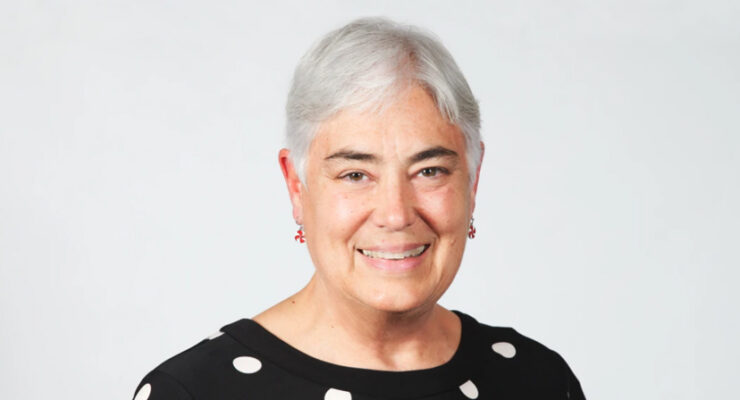
The trauma that children and youth in foster care experience is a serious issue which deserves not only our attention but our concerted action to eliminate it. A recent article in the San Jose Mercury News (SJMN) suggests that Hillsides and a consulting psychiatrist contributed to this trauma after psychotropic medication was prescribed to a former resident who was discharged from our care eight years ago. The article insinuates a pattern of unnecessary use of psychotropic medication. In addition, children and youth at Hillsides are not recruited to participate in clinical trials, a questioning concern raised in the article.
Privacy laws prohibit me from disclosing any medical and personal information about current and former residents of Hillsides. The stories of those in the San Jose Mercury News are examples of the impact traumatic experiences have on children and illustrate how vicarious trauma also affects those adults in their lives.
While the efforts of Karen de Sa, the SJMN reporter, are laudable for drawing attention to a serious matter, it fails to recognize the complex clinical issues challenging residents of programs like Hillsides and as such does a disservice to them and those who offer them care.
The typical child referred to a residential treatment program has experienced multiple failed treatment interventions and placements. Often they have been traumatized by family dysfunction, overwhelmed by learning challenges, exposed to multiple failed treatment strategies, and weakened by a fragmented system of care. Vulnerable and desperate, these are the children who often arrive at a residential treatment program with medication already prescribed.
One advantage of a treatment center like Hillsides is that we have the nursing staff and trained counseling personnel to support such vulnerable children. Complex clinical issues are immediately assessed with the hope of engaging all interested parties in the development of a plan for permanent and stabilizing care.
We espouse a cautious approach to the use of psychotropic medication, intentionally mitigating its use in favor of supportive behavioral approaches. At the time of admission, prescribed medications are reviewed, dosage is assessed, and treatment plans are developed to mitigate if not eliminate the use of psychotropic medication. At all times, this process is subject to the practices and regulatory protocols governing the prescribing of medication to a child in the foster care system.
Prescribing psychotropic medication to children, in general, is a serious issue we examine often to ensure that safeguards are in place. As an agency nationally accredited by the Council on Accreditation, we have internal processes in place to review prescription medication. As I stated to Ms. de Sa in previous correspondence, when medication is prescribed, our healthcare team follows the written approval and authorization process as indicated by DCFS and the Juvenile Court. In all cases when a parent retains rights their consent is required. Residents, when prescribed psychotropic medication as a last resort, have a diagnosable mental health disorder and also participate in an integrated treatment approach. Our consulting psychiatrists submit a three-page Prescribing Physician Statement to the Juvenile Court. This statement addresses numerous factors from symptoms and treatment alternatives, to the diagnoses from the Diagnostic and Statistical Manual of Mental Disorders, Fifth Edition and therapeutic services they will participate in. Consulting psychiatrists follow our guiding philosophy that children and youth will be maintained on the least number of medications possible at the lowest effective dose possible. The Juvenile Court has approved and authorized the psychotropic medication administered to our residents. When prescription medication that requires blood draws is approved by the courts, nursing staff follow all lab protocols to ensure safe use, monitoring, and further assessment. The children and youth are also advised they have a right to refuse medication without fear of consequence, and guardians are notified as well.
Over time, I have seen the complex nature of our clients’ clinical needs escalate. In our residential treatment program, children and youth are diagnosed with severe emotional disturbances and have also experienced traumatic situations that make them unable to live at home for a period of time. Residents receive individual therapy and group counseling, centered on evidence-based practices that are treatment models based on proven research and driven by measurable outcomes. We also practice trauma-informed care principles, an innovative method of care that screens and treats individuals according to the trauma they have experienced, avoiding blame and emphasizing self-care and healing. Expressive arts like music education and art enrichment activities provide therapeutic benefits that promote achievements and healing for our children and youth.
As I have seen clients’ needs change so too have I seen child welfare evolve in my thirty years in this field. As child welfare advocates, we review processes, monitor policies, and recommend ways to advance current practice to improve the well-being of children and youth in foster care. As a result of the Continuum of Care Reform (AB 403), which took effect in January, 2016, the legislation calls for a spectrum of services to accelerate the path to permanency for children in foster care, whether through successful reunification or, when appropriate, adoption. This legislation was informed in part by a pilot program we participated in along with two other residential treatment centers, where children and youth were returned to families in the community in less than a year. We envision that this approach will be the norm moving forward.
As a trauma-informed care provider, we value our residents’ voices and choices. Important to this work is letting them know they can be their own advocates, understand the treatment plan, and inform them of why medication is advised and its side effects.
To suggest otherwise is offensive to the staff who provide quality care and underestimates the efforts of our residents and their guardians to heal and improve their lives. I am proud of our healthcare team who give their dedication, specialized care, and heart to the children and youth we serve. Likewise, I am proud of our children and youth who are resilient, hopeful, inspirational, and courageous. Together, we have always acted in the best interest of our children and youth. This is evident by the results of the monitoring conducted by Community Care Licensing and the numerous DCFS and Department of Mental Health audits. We are compliant with standards and regulations that govern our services. In addition Hillsides earned national accreditation by the Council of Accreditation that demonstrates best practice standards in the field of human services.
The use of psychotropic medication for children is a serious matter. Hillsides applauds the attention journalists like Ms. de Sa have given to the issue, but we strongly disagree with any insinuation that a course of treatment was used without regard for the well-being of a child in our care.
We stand with advocates and providers of therapeutic services for children who are committed to mitigating the use of psychotropic medication and welcome any treatment models that eliminate the use of such medication.
Finally, I also understand the frustration some advocates may feel when young adults formerly in foster care struggle to transition successfully into adulthood. We must continue to work as allies to advocate for safeguards, continuing education and training, and additional funding for child welfare services.
Joseph M. Costa
Hillsides Chief Executive Officer













 0 comments
0 comments


